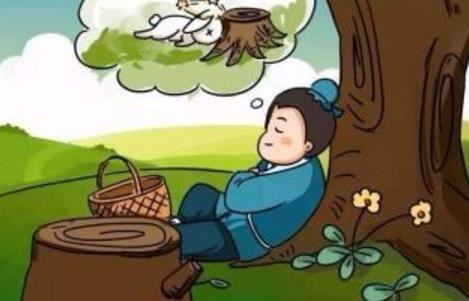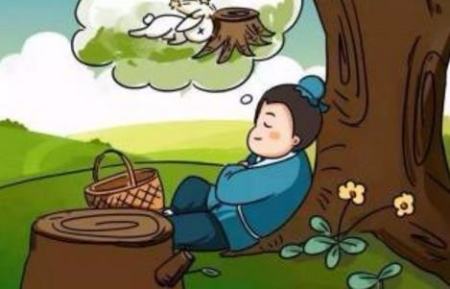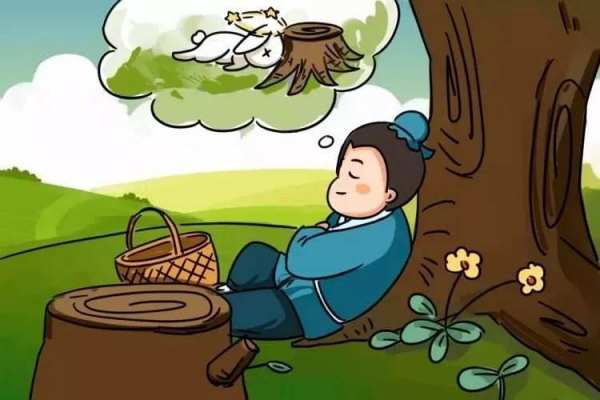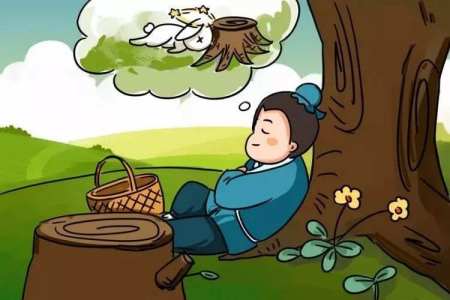守株待兔的寓意是什么,守株待兔的意思是什么?
批判那些不知变通守株待兔的寓意是什么,死守教条的思想方法。 守株待兔能用于褒义,只要掌握了规律,在兔子必经之道上栽几棵树等兔子撞,也是可以的。比如某地是日军必经之地,我们只要在此做好准备,守株待兔即可。


典故:


相传在战国时代宋国,有一个农民,日出而作,日落而息。遇到好年景,也不过刚刚吃饱穿暖;一遇灾荒,可就要忍饥挨饿了。他想改善生活,但他太懒,胆子又特小,干什么都是又懒又怕,总想碰到送上门来的意外之财。奇迹终于发生了。深秋的一天,他正在田里耕地,周围有人在打猎。吆喝之声四处起伏,受惊的小野兽没命的奔跑。突然, 有一只兔子,不偏不倚,一头撞死在他田边的树根上。
守株待兔的意思是比喻妄想不劳而获,或死守狭隘的经验,不知变通。解释:株:露出地面的树根。比喻原来的经验;守:狭隘经验,不知变通,死守教条。出自:《韩非子·五蠹》记载:战国时宋国有一个农民,看见一只兔子撞在树根上死了,便放下锄头在树根旁等待,希望再得到撞死的兔子。
示例:吾料兄必定出身报国,岂是守株待兔之辈。——明·许仲琳《封神演义》第九十四回,启示:不能死守狭隘经验、墨守成规。主要批评狭隘的个人经验的思想方法,揭示道理:全新的情况产生新的问题,只能用新的方法解决,只有愚蠢的人才看不到事实的变化。
守株待兔故事及寓意英文版
寓意:成语“守株待兔”,比喻亡想不劳而得,或死守狭隘的经验,不知变通。This story comes from”The Five Vermin”in The Works of Han Feizi.Later generations often use the set phrase”staying by a stump waiting for more hares to come and dash themselves against it”to show grusting to chance and windfalls or dreaming to reap without sowing.It is also used to show adhering to narrow experiences and not being able to be flexible. 正文:Staying by a Stump Waiting for More Hares To Come and Dash Themselves Against It This story took place more than 2,000 years ago,in the Warring States period(475-221 B.C.).Tradition has it that in the State of Song at that time there was a man who was famous for staying by a stump waiting for more hares to come and dash themselves against it. He was a yong farmer,and his family had been farmers for generations.Year after year and generation after generation, farmers used to sow in spring and harvest in autumn,beginning to work at sunrise and retiring at sunset.In good harvest years,they could only have enough food to eat and enough clothing to wear.If there was a famine due to crop failure,they had to go hungry. This young farmer wanted to improve his life.But he was too lazy and too cowardly.Being lazy and cowardly over everything,he often dreamed of having unexpected blessings. A miracle took place at last. One day in late autumn,when he was ploughing in the field,two groups of people were hunting nearby.As shoutings were rising one after another,scared hares were running desperately.Suddenly,a blind hare dashed itself headlong against the stump of a dead tree in his field and died. That day,he ate his fill. From that day on,he no longer went in for farming again.From morning till night,he stayed by that miraculous stump,waiting for miracles to take place again. This story comes from”The Five Vermin”in The Works of Han Feizi.Later generations often use the set phrase”staying by a stump waiting for more hares to come and dash themselves against it”to show grusting to chance and windfalls or dreaming to reap without sowing.It is also used to show adhering to narrow experiences and not being able to be flexible. 相传在战国时代宋国,有一个农民,日出而作,日入而息.遇到好年景,也不过刚刚吃饱穿暖;一遇灾荒,可就要忍饥挨饿了.他想改善生活,但他太懒,胆子又特小,干什么都是又懒又怕,总想碰到送上门来的意外之财。 奇迹终于发生了。深秋的一天,他正在田里耕地,周围有人在打猎。吆喝之声四处起伏,受惊的小野兽没命的奔跑。突然, 有一只兔子,不偏不倚,一头撞死在他田边的树根上。 当天,他美美地饱餐了一顿。 从此,他便不再种地。一天到晚,守着那神奇的树根,等着奇迹的出现。 成语“守株待兔”,比喻亡想不劳而得,或死守狭隘的经验,不知变通。
















